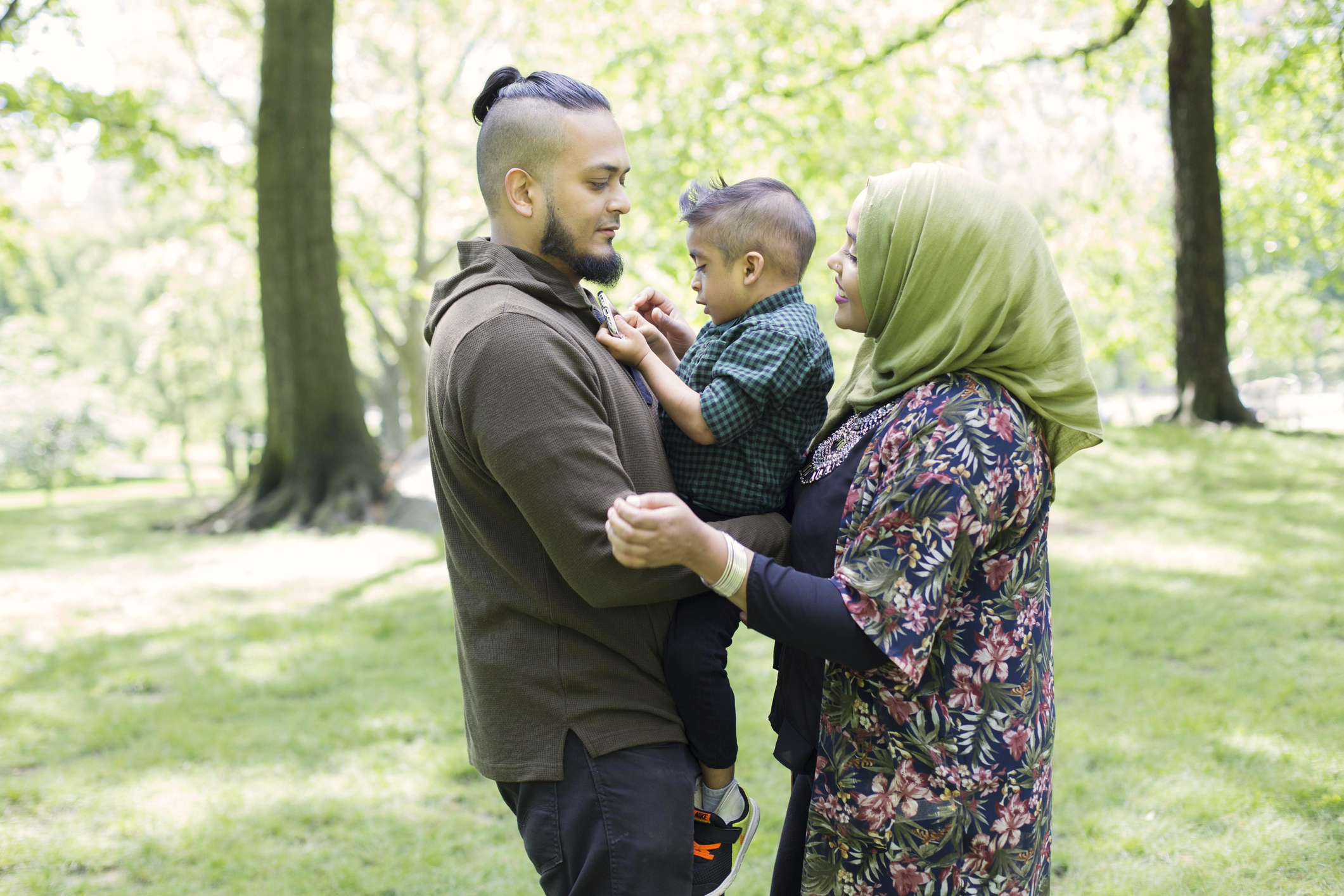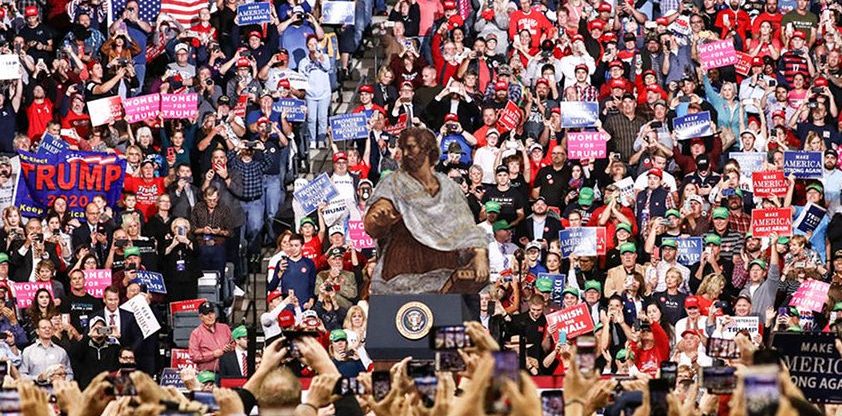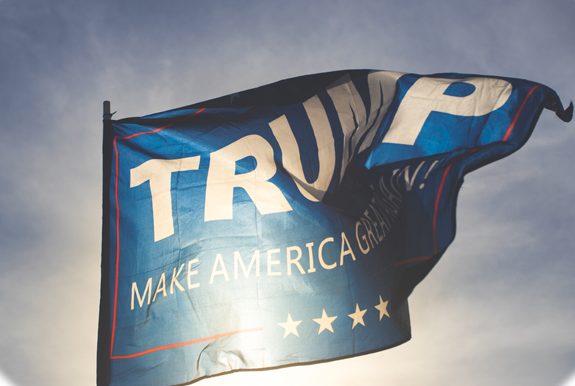BLM and Antifa are determined to bring the country to its knees. We should act accordingly.
Meet Your New Allies

American Muslims are increasingly ready to find common ground with conservatives against the radical Left.
You can’t expect broader society to keep up with intramural American Muslim drama, but something big has happened among Muslims which potentially holds significant consequences for the culture war. A long-simmering internal tension has exploded to the fore, resulting in large numbers of Muslim voters, many of whom reside in swing states critical to winning the 2024 election, now willing to turn to the GOP. American conservatives must not be blinded by prejudice and miss the opportunity dangling in front of them.
In late May, hundreds of Muslim scholars (known as the ulama) released the “Navigating Differences” statement, which unequivocally avers that, “By a decree from God, sexual relations are permitted within the bounds of marriage, and marriage can only occur between a man and a woman.” This is a commonplace known to all traditional religions globally, including Islam. Throughout its entire history, there has never been a disagreement among the Muslim clerisy on this issue—there is an airtight scholarly consensus among scholars of all rites, Sunni, Shi’ite, everyone.
But of course, this being modern America, Muslims had our own faction of screeching comprador academics and progressive deformists who denounced the statement. These “allies” repeated standard talking points about “erasing queer Muslim bodies” and “misinformed interpretations.” But the furor from this vocal minority over the statement was not really about a supposed “disagreement” over the teachings of Islam on this issue—this was merely a cover. The real sin of the statement in the eyes of its detractors was to so brazenly take a policy position associated with the Right.
Shortly after 9/11, Muslims ran into the lap of the Democratic Party. The wars in Afghanistan and Iraq killed and displaced millions of Muslims—not to mention the side quests of the War on Terror in places like Libya, Pakistan, and Syria. Though the policies were largely conducted on a bipartisan basis, the GOP was associated most strongly with anti-Muslim rhetoric and policy in the two decades following 9/11, and so Muslim voters concluded there was no room for them on the Right. The Left, by contrast, tempted Muslims with promises of being included, of belonging up there on stage with the rainbow coalition of other oppressed minorities. Muslims implicitly agreed to “play ball” and de-emphasize Islam as a religion and instead focus on “Muslimness.” We were expected to racialize Islam into a cultural identity marker, and to take radical pluralism as our primary religion. It’s thus no surprise why today every single Muslim congressman is 100 percent pro-LGBT, despite the clear injunctions of their faith on the issue.
So, in short, what we had is Muslims in an uneasy alliance with liberals because they felt the other side wanted to eliminate them. And conservatives seemed to be falling over themselves to outdo one another in their enmity to Islam and Muslims. This situation was taken for granted, and few could imagine it changing in any serious way.
But recently, several events and trends have started to change this calculus. What we see today are conservative commentators speaking with admiration about Muslims and their steadfastness in the face of the culture wars.
Perhaps the first hairline cracks started to appear during the strangely pleasant presidency of Donald Trump. Yes, the so-called “Muslim ban” created difficulties for hundreds of families across the country and made many of us feel targeted. But at the same time, in hushed voices at dinner parties across the country, you would start to hear appreciation: “At least he didn’t bomb Muslim countries en masse like the last two guys.” “It’s pretty great to see Trump get along with strong Muslim leaders like Erdogan.” “You gotta admit, Pence not meeting women in private or without his wife present is a very Islamic thing to do.” The “Muslim leaders” in charge of our community institutions however—fully in thrall to the progressive outrage machine—promised that Trump would be basically Hitler. But this did not materialize. Indeed, Trump—perhaps not out of the kindness of his heart but owing to his emphasis on reducing America’s unnecessary entanglement abroad and focusing on domestic concerns first—killed far fewer Muslims than Bush or Obama. This got the gears turning for many Muslims, who, like me, had believed that to ally with Trump was to reject your own community. But this just was not the case.
Trump’s constituency is a galaxy away from the discredited neocon war hawks of the post-9/11 era. The emergent New Right are not necessarily “true believers” in Trump as a savior-like figure. Rather, he’s a kind of necessary defibrillator to Western civilization, one close to flatlining.
Another interesting moment was the capture of Kabul by the Taliban, when the War on Terror came to a definite end. What I noticed in the aftermath of the reconquista were dozens of glowing articles from commentators on the Right recasting the Taliban as a traditionalist, vitalist fraternal order fighting against a pustulous globalist regime, a regime installed by…us. Gone were the days where the Taliban were seen as the Saracen heathen enemy of American Christianity. “Are we the baddies?” wondered a good portion of the Right.
And most recently, we are now seeing Muslims across the country rally against the indoctrination of trans ideology in public schools. They are standing firm for their children on an issue that many thought was a ship long since sailed.
So, here we are, dear conservative reader, staring at one another across a table. Allow me, then, to propose a few initial ground rules by which this new relationship might be governed, as well as some advice for getting our respective constituencies on board.
Despite more than 20 years of demonization, surveillance, and sabotage, Muslims have carved out a decent niche in American society, with mosques and madrasas being established at a breakneck pace. That’s not to say that we don’t have our dirty laundry and internal infighting—there’s no shortage of that, unfortunately. But regardless of the issues plaguing Muslim minorities in the West, the religious underpinnings of Muslim-majority societies are strong, and Muslim communities in the West remain tied to the Muslim world through family, tourism, religious pilgrimage, and more. These countries may be politically corrupt, economically lackluster, and playing catch-up in other ways—but they all know what the definition of a woman is. That simple fact isn’t going away anytime soon.
The traditional values of Western civilization, by contrast, are collapsing. The classic American Protestant ethic has not retained its appeal over the past few decades, and the family-centered structure of Western society has fallen apart. Before you even realized what was happening, your new official religion became wokeism, the Deep State Magisterium placed its Inquisitors in almost every institution in the country, and unwritten blasphemy laws were quietly passed. Dare utter a word against the official religion and see what happens.
Islam is a bulwark against degeneracy and a natural ally in a traditionalist coalition. We don’t need you to pretend to like Islam; disliking Islam is not Islamophobia. The central deception of Muslims’ alliance with the Left was that we believed they would respect our immutable values even if they conflicted with their lifestyles. This turned out to be a ruse, and we will not be fooled twice. America and Europe have completely whiffed on the sexuality issue. This descent into gender confusion cannot even be imagined in the Muslim world. Conservatives haven’t succeeded in conserving very much; maybe they could stand to learn a thing or two from us here.
I can see certain conservative commentators expressing unease over the friendship between Islam and social conservatism, but these chauvinist voices will derail efforts to work towards shared objectives, including pro-family economic and education policies. And when it comes to Muslims, the dinosaurs in charge of our entire existing leadership architecture will convulse if this effort to heal Muslims’ rift with the Right continues to gain steam.
What this means is that—if this rapprochement is to survive—we need to anticipate all potential spoilers. We need to start making it ok and normal to say nice things about each other to our respective audiences. It wasn’t too long ago when American Muslims voted for George W. Bush in the 2000 election—handing around 14,000 more Muslim votes to him in Florida than Gore received.
It’s my prayer that this piece helps to shed light on what I believe to be a great opportunity for these estranged groups to jumpstart their relationship and to work for shared policy goals that would strengthen America and return us to a degree of normalcy. Skepticism on both sides is inevitable, and that will have to be worked out. But such is the hard work of politics, done by means of tough conversations behind closed doors, in person.
I have written this piece under a pseudonym for obvious reasons. But I represent an influential group of well-established figures in the American Muslim community who stand at the ready to help start dialogue between our two sides. Let’s be in touch.
The American Mind presents a range of perspectives. Views are writers’ own and do not necessarily represent those of The Claremont Institute.
The American Mind is a publication of the Claremont Institute, a non-profit 501(c)(3) organization, dedicated to restoring the principles of the American Founding to their rightful, preeminent authority in our national life. Interested in supporting our work? Gifts to the Claremont Institute are tax-deductible.
Elites and Middle America need each other, and both have a duty to work together to serve our national interest and the common good.
Claremont Institute Senior Fellow John Marini is one of the few experts on American Government who understood the rise of Trump from the beginning of the 2016 election cycle. Now he looks to the fundamental question that Trump's presidency raises: is the legitimacy of our political system based on the authority of the American people and the American nation-state, or the authority of experts and their technical knowledge in the service of "progress"?



